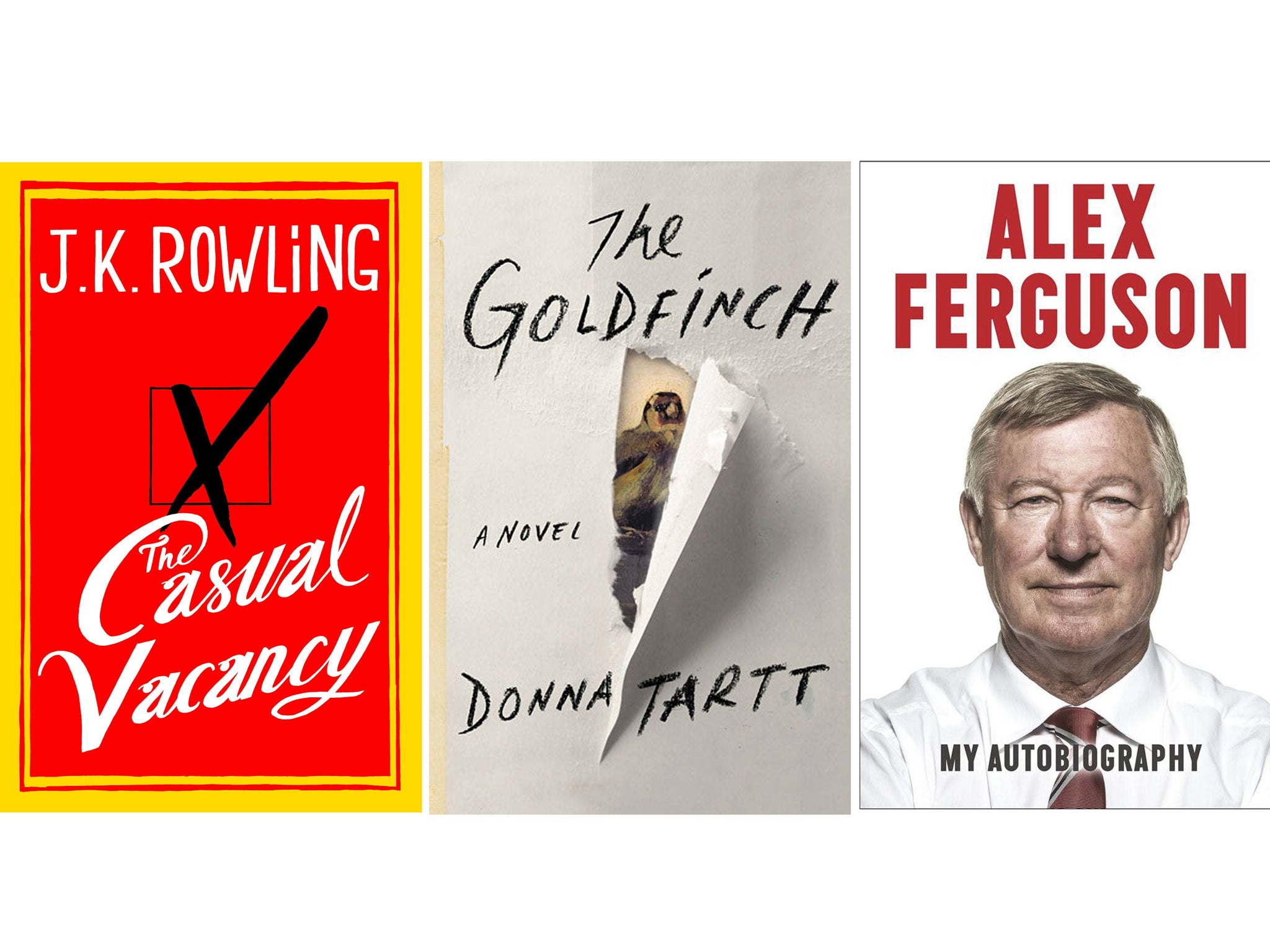Your support helps us to tell the story
From reproductive rights to climate change to Big Tech, The Independent is on the ground when the story is developing. Whether it's investigating the financials of Elon Musk's pro-Trump PAC or producing our latest documentary, 'The A Word', which shines a light on the American women fighting for reproductive rights, we know how important it is to parse out the facts from the messaging.
At such a critical moment in US history, we need reporters on the ground. Your donation allows us to keep sending journalists to speak to both sides of the story.
The Independent is trusted by Americans across the entire political spectrum. And unlike many other quality news outlets, we choose not to lock Americans out of our reporting and analysis with paywalls. We believe quality journalism should be available to everyone, paid for by those who can afford it.
Your support makes all the difference.Epic novels are having a moment – and so, it seems, are the epic advances to go with them. Last week, it was announced that City on Fire, a 900-page debut novel set in New York in the 1970s by American writer Garth Risk Hallberg, had won a US advance of around $2m after a two-day bidding war. At least 10 publishers offered to stump up more than $1m for a book that is, according to its triumphant editor, Diana Miller at publishers Knopf, "off the charts in its ambition and powers of observation".
It's also pretty off the charts for a debut advance (the average being anything from £10,000), although it surely helped that film producer Scott Rudin had snapped up the film rights before the auction began. But according to Richard Beswick, the publishing director at Little Brown, part of the mega-conglomerate Hachette, huge advances for first-time novelists can be as much a curse as a blessing. "If a book like City on Fire flops that can hang over you for the rest of your writing career," he says. "Of course, paying out huge advances is a massive gamble for publishers, but sometimes they can't resist it, reckoning that it's more likely to pay a dividend than making a series of small ones."
At this year's London Book Fair, it was definitely the first-time authors who were setting the city on fire. Matthew Thomas, a 38-year-old American high-school teacher, sold the rights for his 700-page sprawling Irish-American saga, We Are Not Ourselves, for $1m in the US and for a six-figure sum here. A punt from the publishers maybe, but since, like Donna Tartt (who reportedly received an advanced of around £1m for The Goldfinch), Thomas spent a decade writing his novel, his hourly rate could hardly be called extortionate. But then he was never, he has said, doing it for the cash.
Elizabeth is Missing, a debut by Londoner and former book binder Emma Healey, 28, about an 81-year-old with dementia, was also at the centre of a big auction and, after a fierce nine-way battle, sold for six-figure sum. Meanwhile, no fewer than 11 publishers tussled for The Miniaturist by actress and former Oxford student Jessie Burton, after her agent Juliet Mushens, at The Agency Group, pulled off a six-figure deal in the UK for it – having saved the manuscript from a slush pile. But will these high-risk first timers ever earn their advances back? Only if the books turn out to be any good and sell well, since the authors have no previous form and hype only goes so far. Even JK Rowling, who had one of the most carefully orchestrated PR campaigns of all time last year for the launch of The Casual Vacancy, had disappointing sales and mixed reviews.
Jonny Geller, the agent at Curtis Brown renowned for winning his writers big advances, points out that books make money in the unlikeliest ways. Sometimes it's from library sales, sometimes it's a serial deal. "Publishing is a gamble. It's all about hedging bets, but then no one pretends it's otherwise. But it's easier for a publisher to make a splash about a book and a sale than it is to publish a small book well."
A safer bet that publishers will always splurge on is the super-celeb memoir, for which the public has an insatiable appetite. According to Geller, it is a straightforward business with simple maths. The whopper in recent times was Tony Blair's My Journey, published in 2010, for which he was paid £4.6m – and it went straight to the top of the bestseller lists, outselling on its first day of publication both David Beckham and Russell Brand's autobiographies. Other big spends of the past few years include Eric Clapton (£2.5m), Jack Welch (£4.5m) – the American CEO of General Electric, believe it or not, and Frank Skinner (£750,000).
This year, as the frenzied lead-up to Christmas gets underway, publishers are putting their money on a team of sporting celebs, with David Beckham (the illustrated version), Harry Redknapp, Andy Murray, Mo Farah, Mike Tyson, Usain Bolt and Sir Alex Ferguson slugging it out on the pitch. But this is no team sport – and the winner by a mile so far is Sir Alex, who received a £2m advance for his snappily titled My Autobiography. It's been shifting 100,000 copies a week since its release three weeks ago. "It's usually after Christmas that the publishers do their sums, but I imagine Ferguson will have paid out handsomely already," says Beswick.
So there we have it. Come the New Year, some publishers will be celebrating their fortunes, while others will be licking their wounds. But one imagines, not for long. And, says Geller, "epic advances will carry on so long as there is more than one publisher in the room!"

Join our commenting forum
Join thought-provoking conversations, follow other Independent readers and see their replies
Comments